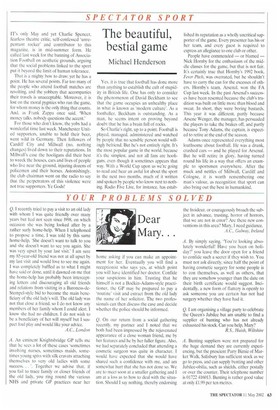Q.I recently tried to pay a visit to an old
lady with whom I was quite friendly over many years but had not seen since 1998, on which occasion she was being looked after by a rather surly home-help. When I telephoned to propose a time, I was told by this same home-help, She doesn't want to talk to you and she doesn't want to see you again. She was very upset by your last visit.' I am sure my 85-year-old friend was not at all upset by my last visit and would love to see me again. I was completely baffled as to what I might have said or done, until it dawned on me that the home-help has probably been intercepting letters and discouraging all old friends and relations from visiting in a Baroness-deStempel-style bid to become the main beneficiary of the old lady's will. The old lady was not that close a friend, so I do not know any members of her family whom I could alert. I know she had no children. I do not wish to he a beneficiary of her will myself but I suspect foul play and would like your advice.
A.C., London A. An eminent Knightsbridge GP tells me that he sees a lot of these cases 'sometimes involving nurses, sometimes maids, sometimes young spivs with silk cravats attaching themselves to very old ladies with some
success. . . Together we advise that, if you fail to trace family or closer friends of the old lady, you ring round the various NHS and private GP practices near her home asking if you can make an appointment for her. Eventually you will find a receptionist who says yes, at which point you will have identified her doctor. Confide your suspicions in him. Trusting that he himself is not a Bodkin-Adams-style practitioner, the GP may be prepared to pay a 'routine' visit and extract from the old lady the name of her solicitor. The two professionals can then discuss the case and decide whether the police should be informed.






































































 Previous page
Previous page